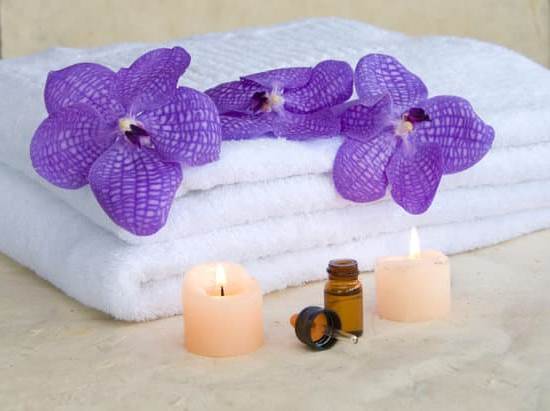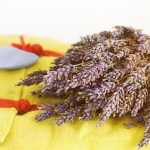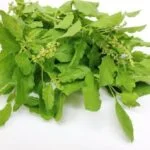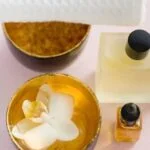Aromatherapy Tea Tree is a popular essential oil known for its numerous benefits for skin health. Derived from the leaves of the Melaleuca alternifolia plant, tea tree oil has been used for centuries for its antimicrobial and anti-inflammatory properties. In this article, we will explore the potential uses of aromatherapy tea tree on the skin, including its benefits, different application methods, and precautions to keep in mind.
One of the most common questions asked about aromatherapy tea tree is whether it can be safely used on the skin. The answer is yes – when used correctly and with proper dilution, tea tree oil can be a powerful addition to your skincare routine. Its natural antibacterial and anti-inflammatory properties make it a versatile option for promoting healthier skin.
In the following sections, we will delve into the specific benefits of using aromatherapy tea tree for skin health, as well as different ways to incorporate it into your skincare regimen. Additionally, we will provide tips for safe dilution and application, as well as important precautions to consider before using this essential oil on your skin. Whether you’re dealing with acne or simply looking to soothe irritated skin, aromatherapy tea tree may offer a natural solution worth exploring.
Benefits of Aromatherapy Tea Tree for Skin Health
Aromatherapy tea tree, also known as melaleuca oil, is well-known for its powerful antiseptic properties and has been used for centuries to promote skin health. This essential oil is derived from the leaves of the Melaleuca alternifolia plant native to Australia. Its natural antibacterial, antifungal, and anti-inflammatory properties make it a popular choice for treating various skin conditions.
Antibacterial Properties
One of the key benefits of aromatherapy tea tree for skin health is its strong antibacterial properties. When applied to the skin, it can help to kill acne-causing bacteria and prevent infections in cuts, scrapes, and other minor wounds. This makes it an effective natural remedy for promoting healthy, clear skin.
Anti-Inflammatory Effects
In addition to its antibacterial properties, aromatherapy tea tree also exhibits anti-inflammatory effects when applied to the skin. This can help to reduce redness, swelling, and irritation caused by conditions such as eczema and psoriasis. It may also provide relief for insect bites and sunburns.
Antifungal Abilities
Aromatherapy tea tree is also known for its antifungal abilities, making it a great option for treating fungal infections such as athlete’s foot and toenail fungus. When used topically, it can help to inhibit the growth of fungal pathogens and promote healing of affected areas.
Different Ways to Use Aromatherapy Tea Tree on Skin
Aromatherapy tea tree, also known as Melaleuca oil, is a popular essential oil that has numerous benefits for skin health. This powerful oil is renowned for its antibacterial, anti-inflammatory, and antiseptic properties, making it a versatile and effective option for skincare. When used properly, aromatherapy tea tree can help treat a variety of skin concerns and promote overall skin wellness.
One of the most common ways to use aromatherapy tea tree on the skin is by diluting it with a carrier oil and applying it topically. A few drops of tea tree oil can be added to a carrier oil such as coconut oil or jojoba oil before being massaged into the skin.
This method is particularly useful for addressing acne, as the antibacterial properties of tea tree oil can help combat acne-causing bacteria and reduce inflammation. Additionally, aromatherapy tea tree can also be added to skincare products such as lotions or serums to enhance their effectiveness.
Another way to incorporate aromatherapy tea tree into your skincare routine is by adding a few drops of the essential oil to bath water. This allows for overall skin nourishment and may help alleviate dryness or irritation. The steam from the bath can also facilitate inhalation of the tea tree aroma, providing potential aromatherapeutic benefits in addition to topical application.
Lastly, aromatherapy tea tree can be used as an ingredient in DIY skincare recipes such as homemade facial masks or toners. When combined with other skin-friendly ingredients like honey, aloe vera, or witch hazel, tea tree oil creates potent formulations that can address specific skin concerns while providing natural and gentle care.
| Ways to Use Tea Tree Oil | Description |
|---|---|
| Topical Application | Add a few drops of tea tree oil to a carrier oil and apply directly to the skin. |
| Bath Soak | Add several drops of tea tree oil to bath water for overall skin nourishment. |
| DIY Skincare Recipes | Incorporate tea tree oil into homemade facial masks or toners for targeted skincare benefits. |
Tips for Diluting Aromatherapy Tea Tree for Safe Application
Aromatherapy tea tree oil is a popular essential oil known for its various properties, including its anti-inflammatory, antimicrobial, and antiseptic qualities. These properties make it a great option for treating skin issues and promoting overall skin health. However, it’s important to dilute tea tree oil properly before applying it to the skin, as using it in its concentrated form can cause irritation or allergic reactions in some individuals.
One of the best ways to dilute aromatherapy tea tree oil for safe application on the skin is by mixing it with a carrier oil. Carrier oils such as coconut oil, almond oil, or jojoba oil can help reduce the potency of the tea tree oil while still allowing it to be effective on the skin. A general rule of thumb is to mix about 12 drops of tea tree oil with 1 ounce of carrier oil.
Another way to use aromatherapy tea tree on the skin is by adding a few drops to your regular skincare products, such as moisturizers or cleansers. This can give your existing products an added boost in their antibacterial and anti-inflammatory properties without having to create a separate diluted mixture.
It’s also worth noting that when using aromatherapy tea tree on the skin, it’s important to do a patch test first to check for any adverse reactions. Apply a small amount of diluted tea tree oil to a small area of the skin and wait 24 hours to see if any redness, itching, or swelling occurs. If there are no adverse reactions, then you can safely use the diluted mixture on larger areas of your skin.
| Benefit | Method |
|---|---|
| Reduces inflammation and redness | Mixing with carrier oils |
| Fights against acne-causing bacteria | Adding drops to regular skincare products |
| Promotes overall skin health | Conducting patch test before full application |
Precautions and Potential Side Effects of Aromatherapy Tea Tree on Skin
Aromatherapy Tea Tree, when used on the skin, can offer numerous benefits for skin health. However, it is important to be aware of the potential precautions and side effects that may arise from its use. While many people find Aromatherapy Tea Tree to be safe for topical application, there are some important considerations to keep in mind.
Precautions for Using Aromatherapy Tea Tree on Skin
Before using Aromatherapy Tea Tree on your skin, it’s important to consider a few key precautions. First, it’s crucial to perform a patch test before using it on larger areas of the skin to check for any allergic reactions or irritation. In addition, pregnant or breastfeeding individuals should consult a healthcare professional before using Aromatherapy Tea Tree, as its safety during these times has not been extensively studied.
Potential Side Effects of Aromatherapy Tea Tree on Skin
While Aromatherapy Tea Tree is generally considered safe for topical use, some individuals may experience side effects. These can include skin irritation, redness, itching, or an allergic reaction. It’s important to discontinue use if any of these symptoms occur and seek medical attention if the reaction is severe.
Proper Dilution and Usage
To minimize the risk of potential side effects, it’s important to properly dilute Aromatherapy Tea Tree before applying it to the skin. This can be done by mixing a few drops of the essential oil with a carrier oil, such as coconut oil or almond oil. Additionally, it is recommended to follow product instructions carefully and avoid using undiluted tea tree oil directly on the skin.
As with any skincare product or remedy, it’s important to be informed about its proper usage and any potential risks involved before incorporating it into your skincare routine.
By being aware of these precautions and potential side effects associated with using Aromatherapy Tea Tree on the skin, individuals can enjoy its benefits while minimizing any potential risks.
Aromatherapy Tea Tree for Acne Treatment
Tea tree oil, derived from the Melaleuca alternifolia tree, has been used for centuries for its powerful antiseptic properties. When it comes to skincare, tea tree oil is particularly effective in combating acne due to its ability to fight bacteria and reduce inflammation. Here are some ways in which aromatherapy tea tree can be used specifically for acne treatment:
- Spot Treatment: Dab a small amount of diluted tea tree oil directly onto the affected areas using a cotton swab. This helps to target individual blemishes and reduce their size and redness.
- Facial Steam: Add a few drops of tea tree oil to a bowl of hot water, then drape a towel over your head and steam your face. This can help to open up pores and cleanse the skin, preventing future breakouts.
- Face Mask: Mix a few drops of tea tree oil with a natural clay mask or plain yogurt, then apply it to the face and leave on for 15-20 minutes before rinsing off. This can help to draw out impurities and calm irritation.
It’s important to note that while aromatherapy tea tree can be effective in treating acne, it should always be used with caution. The potency of pure tea tree oil means that it should never be applied directly to the skin without being diluted first. In addition, it’s best to do a patch test before using tea tree oil on larger areas of the skin, as some individuals may experience adverse reactions.
Aromatherapy Tea Tree for Soothing Irritated Skin
Aromatherapy tea tree oil is renowned for its ability to soothe irritated skin. Its anti-inflammatory and calming properties make it a popular choice for addressing various skin conditions, from minor irritations to more severe issues like eczema or psoriasis. Here are different ways in which you can use aromatherapy tea tree oil to soothe irritated skin:
– Topical Application: Dilute a few drops of aromatherapy tea tree oil with a carrier oil such as coconut oil, almond oil, or jojoba oil. Gently massage the mixture onto the affected area to help reduce redness and inflammation.
– Bath Soak: Add a few drops of aromatherapy tea tree oil to your bath water and soak for at least 15 minutes. This method can help calm overall skin irritation and provide relief from itching or discomfort.
– DIY Skin Care Products: Incorporate aromatherapy tea tree oil into your homemade skincare products such as lotions, creams, or serums. This allows you to customize the concentration of the oil based on your skin’s specific needs.
When using aromatherapy tea tree on the skin, it is important to follow proper dilution guidelines to ensure safe application. Undiluted tea tree oil can be harsh on the skin and may cause further irritation. Take note of these tips for diluting aromatherapy tea tree for safe application:
1. Use a 2% concentration: The general rule of thumb is to mix 12 drops of essential oil with 1 ounce (30ml) of carrier oil.
2. Perform a patch test: Before applying the diluted solution all over the affected area, do a patch test on a small portion of your skin to check for any adverse reactions.
3. Consult with a professional: If you have sensitive skin or existing skin conditions, it is advisable to seek advice from a dermatologist or aromatherapist before using aromatherapy tea tree on your skin.
By taking these precautions and following proper dilution techniques, you can safely reap the benefits of aromatherapy tea tree for soothing irritated skin without experiencing any potential side effects.
Conclusion
In conclusion, Aromatherapy Tea Tree can indeed be used on the skin, and it offers a wide range of benefits for skin health. Its natural antibacterial, anti-inflammatory, and antiseptic properties make it a popular choice for treating various skin issues, including acne and irritation. Additionally, Aromatherapy Tea Tree has been found to be effective in soothing and healing the skin without causing significant side effects when used properly.
When using Aromatherapy Tea Tree on the skin, there are several safe application methods to consider. These include adding a few drops of tea tree essential oil to a carrier oil for massage, incorporating tea tree-infused skincare products into your routine, or creating homemade tea tree-based remedies like serums or toners. Whatever the method chosen, it is essential to dilute the essential oil properly to avoid any adverse reactions.
Although Aromatherapy Tea Tree offers numerous benefits for skin care, it is important to proceed with caution due to potential side effects and sensitivities. It’s always best to perform a patch test before applying tea tree essential oil directly to larger areas of the skin. When used responsibly and in moderation, Aromatherapy Tea Tree can be a valuable addition to anyone’s skincare regimen.
Frequently Asked Questions
Can I Use Aromatherapy Tea Tree Oil on My Skin?
Tea tree oil is commonly used for its antibacterial and antifungal properties, making it suitable for skin conditions like acne, dandruff, and athlete’s foot. However, it should be diluted with a carrier oil before applying to the skin to avoid irritation.
How Do You Use Tea Tree Aromatherapy?
Tea tree aromatherapy can be used in a variety of ways. It can be diffused to freshen the air and support respiratory health, added to DIY cleaning products for its disinfectant properties, or used topically when properly diluted for skin and hair treatments.
What Are the Benefits of Tea Tree Aromatherapy?
The benefits of tea tree aromatherapy include its ability to alleviate acne, soothe dry scalp and dandruff, treat minor cuts and scrapes, relieve congestion when inhaled, and act as a natural insect repellent. It is also known for its refreshing and cleansing scent that can promote relaxation and mental clarity.

Are you looking for a natural way to improve your health and wellbeing?
If so, aromatherapy may be the answer for you.





